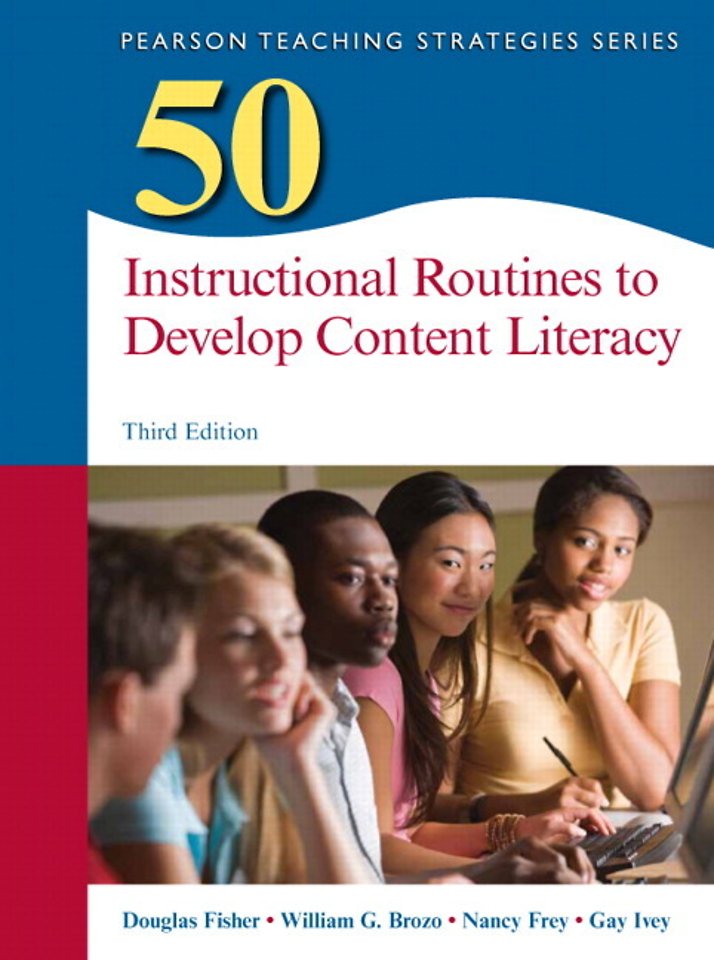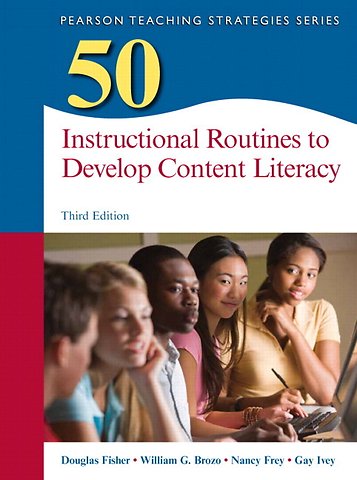50 Instructional Routines to Develop Content Literacy
Samenvatting
Some of the best-known authors in the field come together to provide teachers with fifty step-by-step procedures for implementing content area instructional routines to improve students’ literacy skills. 50 Instructional Routines to Develop Content Literacy, 3/e helps adolescents to become more successful readers. Middle and high school teachers can immediately put to use its practical information and real classroom examples from science, social studies, English, math, the visual and performing arts, and core electives to improve students’ reading, writing, and oral language development. Going above and beyond basic classroom strategies, the instructional routines recommend simple changes to teachers’ everyday procedures that foster student comprehension, such as thinking aloud, using question-answer relationships, and teaching with word walls.
The routines are: Selected to ensure that all students engage in reading, writing, speaking, listening, and viewing as part of the literacy process. Taken from real classrooms, real students, and real results. Organized for easy and quick referencing. Applicable to English learners and struggling readers.
This new edition features: NEW! More detailed classroom scenarios. NEW! New routines that address the Common Core State Standards. NEW! Up-to-date research reviews and references. NEW! A focus on additional content areas.
Specificaties
Inhoudsopgave
Anderen die dit kochten, kochten ook
Rubrieken
- cadeauboeken
- computer en informatica
- economie
- filosofie
- flora en fauna
- geneeskunde
- geschiedenis
- gezondheid
- jeugd
- juridisch
- koken en eten
- kunst en cultuur
- literatuur en romans
- mens en maatschappij
- naslagwerken
- non-fictie informatief/professioneel
- paramedisch
- psychologie
- reizen
- religie
- schoolboeken
- spiritualiteit
- sport, hobby, lifestyle
- thrillers en spanning
- wetenschap en techniek
- woordenboeken en taal







